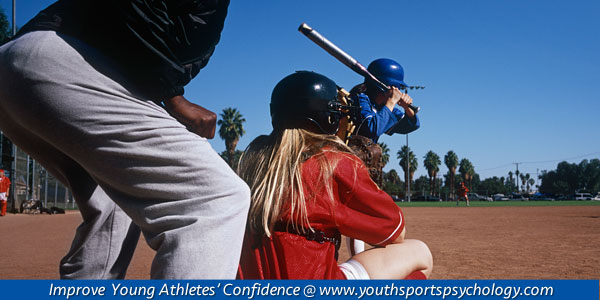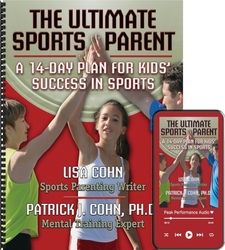
Parents Comparing Sports Kids
Sports parents, you need to stop making comparisons. Only then will your kids stop taking part in this confidence-busting activity.
Ah, but it’s so tempting to chat with your kids, spouse and neighbors about how Johnny’s free-throw shot is a little crooked compared to your kids’ shot, or how the coach seems to favor the kids next door over your own athlete. It’s so tempting to compare your kids’ scoring record to the other athletes’ records.
However, if you do this, your kids will likely do it, too. And we promise their confidence will suffer from making comparisons.
A sports mom who recently wrote us has fallen into this trap. Her daughter is a top-notch volleyball player who was selected to play varsity as a freshman in high school.
Other players, apparently jealous, started to exclude the player, and it hurt her confidence–understandably. But the comparisons are even taking place about who gets the most press:
“Even though her stats proved she was a top player, she didn’t receive any honors from the local papers or coaches. Some of the girls that did receive honors have family who work for the school system.”
Clearly, this is not an ideal situation for this player or her family. However, comparing the player to others won’t improve her performance or confidence.
Dangers of Comparison
Here’s the problem: When kids make comparisons to others, they generally focus on what makes others better than they are. That makes them concentrate on their own weaknesses, which hurts their confidence.
In this case, the girl is in the unfortunate situation of being excluded by others and not getting the recognition she likely deserves. However, if she wants to stay on this team, she needs to change what she’s focusing on (so do her parents).
Kids should stop looking at and thinking about other players during warm-ups and games. They need to do the work that’s needed for them to get the job done. That means they should not focus on whether others like them or say nice things to them.
Before a game, they should focus on a warm-up routine. This will help take their minds off other players. Instead, they should focus on their own strengths or talents, instead of the strengths of others.
Want to learn more about how kids can boost their confidence and how you can be better sports parents? At Kids’ Sports Psychology, we’ve got plenty of resources for you.
For example, exclusive members of Kids’ Sports Psychology can download, for free:
- “Appreciate Your Talents: How to Stop Making Comparisons,” written specifically for sports kids. Other resources include:
- “How Parents and Coaches Can Cope with Bullying In Sports,” an article that would apply to this family’s situation.
- “Confidence Video Tip 10: Focus on Your Game, Not Others,” a video.
Plus we’ve got many other articles, videos, expert interviews, and e-books!
Related Articles on Youth Sports:
- Help Sports Kids Turn Comparisons into Growth & Comradery
- Athletes Who Make Comparisons And How Parents Contribute
- Why Kids’ Self-Confidence Suffers When Sports Parents Make Comparisons
*Subscribe to The Sports Psychology Podcast on iTunes
*Subscribe to The Sports Psychology Podcast on Spotify
Help Young Athletes Boost Confidence in Sports!
Every day, we receive letters from parents like you who want their children and teens to excel in sports. However, these parents can see fear, doubt, and frustration on the faces of their kids who struggle with the “inner” game of sports. But these parents have no idea how to help their kids overcome the worries, expectations and self-defeating thoughts that prevent their young athletes from feeling confident and successful.
You can benefit from our 15-plus years’ of work in sports psychology and sports parenting research. Now, you can tap into our secrets to sports success through a cutting-edge, 14-day program that helps young athletes overcome the top “mental game” challenges that sports parents face—and the top challenges young athletes face.


I totally agree. Parents are also very subtle about their comparisons. They “notice” how well other athletes do things and mention it, hoping to motivate their players to work harder. That doesn’t work. It only makes the athlete feel inadequate.
We teach our children to compete against themselves. For example, our son runs races…we encourage him to work hard to beat his last time. Or in wrestling, to score a point on a wrestler who always beats him. Setting a personal goal like that really makes them focus on something other than just the overall “win”.